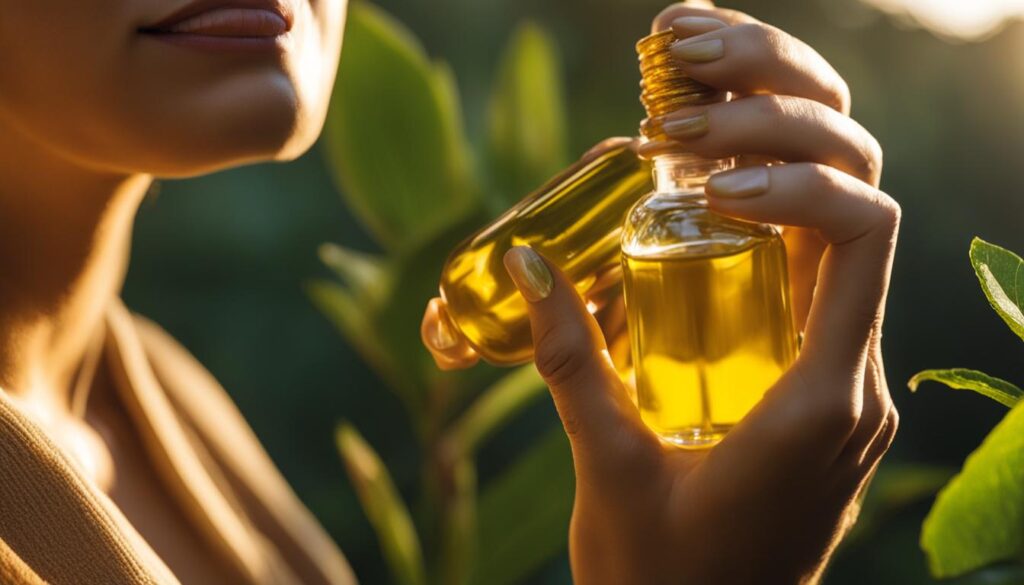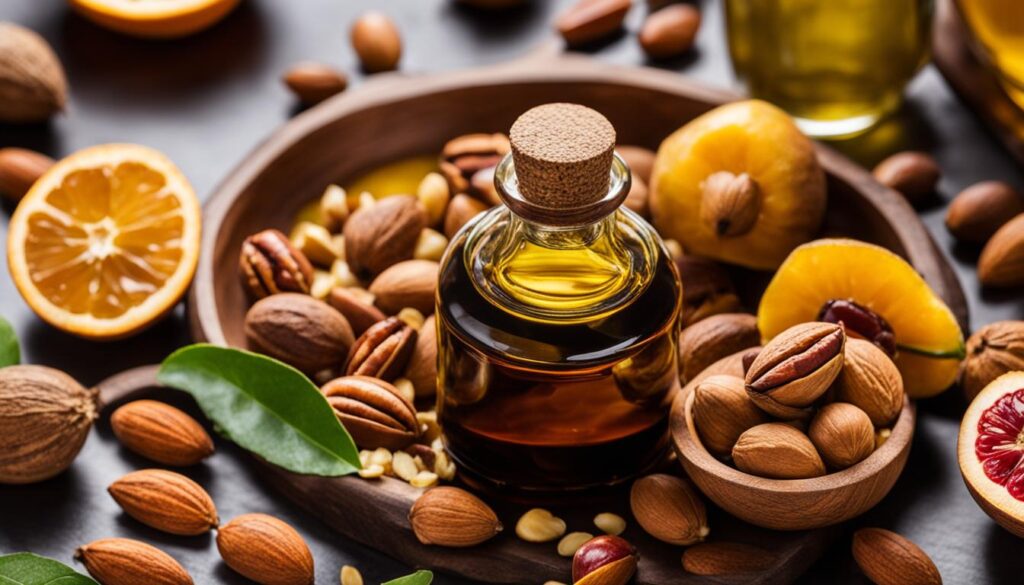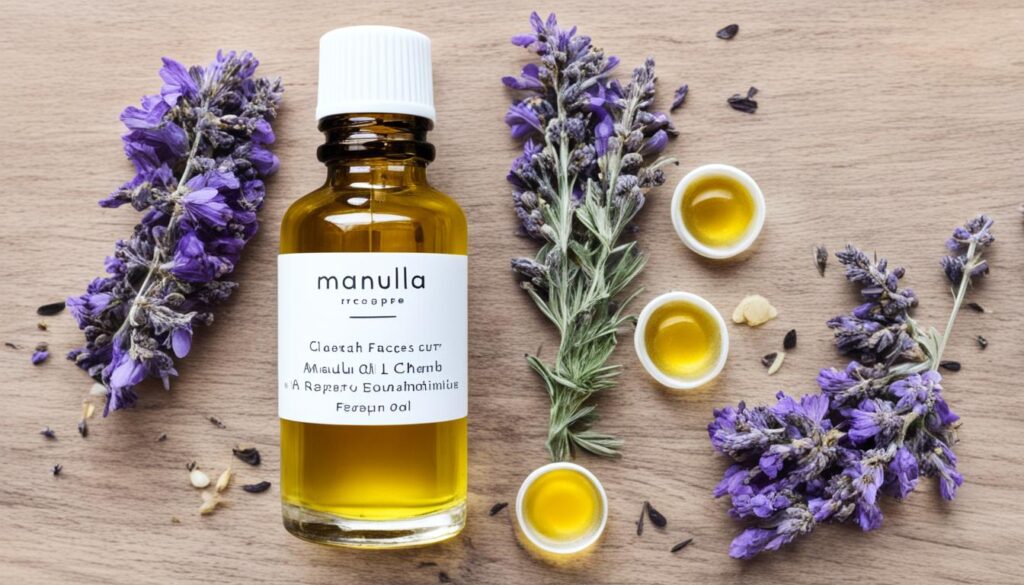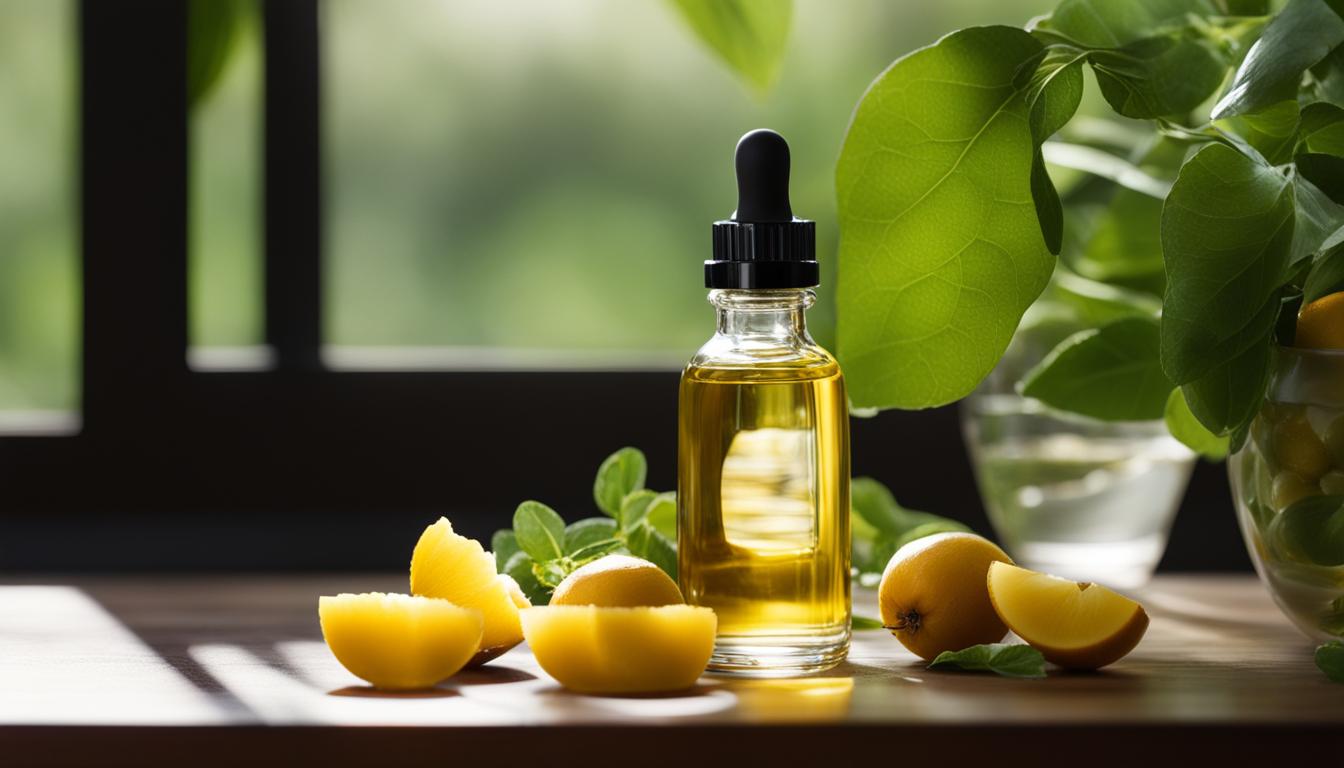Are you ready to unlock the secrets of African skincare routines? Look no further than DIY Marula Oil Face Serums. Marula oil, derived from the Marula tree, has been cherished for centuries in African beauty rituals. With its incredible nourishing properties, Marula oil is a must-have ingredient for anyone seeking a natural and effective skincare solution.
Marula oil is particularly beneficial for those with dry or sensitive skin. Its high concentration of fatty acids and antioxidants makes it a powerhouse for moisturizing, repairing the skin’s moisture barrier, and reducing signs of aging. Incorporating Marula oil into your homemade face serums can provide mega-hydration, leaving your complexion rejuvenated, radiant, and ready to face the world.
Whether you’re a skincare enthusiast or simply looking to enhance your beauty routine, DIY Marula Oil Face Serums are a game-changer. Join me on this journey to discover the wonders of Marula oil and elevate your skincare regimen to new heights.
Key Takeaways:
- Marula oil is extracted from the Marula tree, a prominent ingredient in African skincare routines.
- It is recommended for individuals with dry or sensitive skin due to its hydrating and moisturizing properties.
- Marula oil’s high concentration of fatty acids and antioxidants can help repair the skin’s moisture barrier and reduce signs of aging.
- DIY Marula Oil Face Serums can be customized to address individual skincare concerns and nourish the skin naturally.
- By incorporating Marula oil into homemade face serums, you can unlock the secrets of African beauty rituals and enjoy a radiant complexion.
What is Marula Oil?
Marula oil is a remarkable skincare ingredient derived from the Marula tree, scientifically known as Sclerocarya birrea subsp. Caffra. The oil is obtained through the mechanical pressing of the seed kernels after extraction. With its impressive composition and unique properties, Marula oil offers valuable benefits for the skin.
When it comes to cosmetic formulations, Marula oil’s comedogenic rating of 4 indicates a higher likelihood of clogging pores for some individuals. However, it is still a highly sought-after ingredient due to its nourishing and hydrating properties. The INCI name for Marula oil is Sclerocarya Birrea Seed Oil, and its COSING number is 57017, providing easy identification for manufacturers and consumers.
Marula oil is particularly recommended for people with dry or sensitive skin types due to its moisturizing capabilities. It is absorbed by the skin quickly, providing a smooth finish. The oil’s absorption rating of 2 supports its suitability for various skincare applications.
Whether you’re seeking to address specific skin concerns or simply enhance your skincare routine, Marula oil is a versatile ingredient that can elevate your skincare experience.
Benefits of Marula Oil for Skin
Marula oil offers a plethora of benefits for the skin, making it a must-have ingredient in your skincare routine. Whether you have dry, chapped, or aging skin, Marula oil has got you covered.
Soothes Dry Skin and Seals in Moisture
Marula oil is a natural powerhouse when it comes to soothing dry skin. Its rich and deeply moisturizing properties help to replenish lost moisture and leave your skin feeling nourished and hydrated. By forming a protective barrier on the skin’s surface, Marula oil helps to seal in moisture, preventing further dehydration.
Repairs the Skin’s Natural Moisture Barrier
The high concentration of fatty acids in Marula oil makes it an excellent choice for repairing the skin’s natural moisture barrier. This barrier is responsible for locking in moisture and keeping harmful irritants out. By fortifying the skin’s moisture barrier, Marula oil promotes hydration, smoothness, and overall skin health.
Packed with Antioxidants for Skin Health
Marula oil is packed with antioxidants, which play a crucial role in maintaining healthy skin. Antioxidants help to protect the skin from environmental damage caused by free radicals, reducing the signs of aging such as fine lines and wrinkles. Regular use of Marula oil can help keep your skin looking youthful and radiant.

Popular Uses of Marula Oil for Skin
Marula oil is a versatile ingredient that can be found in a variety of skincare products. Its emollient properties make it a popular choice for moisturizers, creams, and foundations. This luxurious oil is also commonly used in anti-aging products due to its nourishing and hydrating properties. Whether it’s used on its own or in combination with other oils, Marula oil is a key ingredient in creating effective serums and moisturizers. Additionally, its healing properties make it an excellent choice for balms and other skin repair products.

- Moisturizers
- Creams
- Foundations
- Anti-aging products
- Emollient balms
Its rich and nourishing composition makes Marula oil a sought-after ingredient in the skincare industry.
Benefits of Marula Oil in Skincare Products
Marula oil offers several benefits when used in skincare products:
- Moisturization: Marula oil is deeply hydrating and helps retain moisture, making it excellent for dry and dehydrated skin.
- Anti-Aging: The high concentration of antioxidants in Marula oil helps to combat the signs of aging, such as fine lines and wrinkles.
- Skin Repair: The emollient properties of Marula oil make it ideal for repairing and soothing damaged skin.
- Protection: Marula oil provides a natural barrier against environmental pollutants and free radicals.
With its multitude of uses and benefits, Marula oil is a valuable addition to any skincare routine.
Substitutes for Marula Oil in Skincare
If you’re looking for a substitute for Marula oil in your skincare routine, there are a couple of alternatives that you can consider. These substitutes offer similar benefits for the skin and can be used in the same products as Marula oil.
Coconut Oil
Coconut oil is a popular choice as a substitute for Marula oil. It has a comedogenic rating similar to Marula oil, making it suitable for users with normal to dry skin. Coconut oil has moisturizing properties that help hydrate the skin and lock in moisture. It is also known for its quick absorption, leaving your skin feeling soft and smooth. However, it’s important to note that coconut oil may not be suitable for everyone, especially those with oily or acne-prone skin.
Baobab Seed Oil
Another alternative to Marula oil is Baobab Seed oil. It has similar benefits for the skin and does not clog pores. Baobab Seed oil has a comedogenic rating of 2, which means it is less likely to cause pore blockage. It is rich in vitamins and nourishing fatty acids that help moisturize and hydrate the skin. Baobab Seed oil absorbs quickly into the skin, providing a non-greasy finish. It is a great choice for individuals with sensitive or acne-prone skin.
Both Coconut oil and Baobab Seed oil can be used as substitutes for Marula oil in various skincare products such as moisturizers, creams, and serums. They offer moisturizing properties, absorb quickly, and help nourish the skin.

| Oil | Comedogenic Rating | Moisturizing Properties | Absorption Rating |
|---|---|---|---|
| Marula oil | 4 | Yes | 2 |
| Coconut oil | 4 | Yes | 2 |
| Baobab Seed oil | 2 | Yes | 2 |
Warnings and Safety Precautions for Using Marula Oil
Marula oil is a versatile and beneficial skincare ingredient, but it’s important to exercise caution when using it. Here are some essential warnings and safety precautions to keep in mind:
- Perform a patch test: Before incorporating Marula oil into your skincare routine, it’s recommended to perform a patch test. Apply a small amount of the oil on a less sensitive area of your skin, such as the inner arm, and observe for any signs of allergic reactions, redness, or irritation.
- Choose reputable brands: When purchasing Marula oil, opt for brands that offer high-quality, pure organic products. Some trusted brands that provide Marula oil include Leven Rose Pure Organic, Mountain Rose Herbs, New Directions Aromatics, Soapmaker’s Store, Formulator Sample Shop, From Nature With Love, and Lotion Crafter. These brands are known for their commitment to quality and safety.
- Follow usage instructions: Carefully read and follow the usage instructions provided by the manufacturer. Marula oil is generally safe to use, but it’s essential to adhere to recommended application methods and avoid excessive or inappropriate usage.
Taking the time to perform a patch test can help you determine if you have any sensitivities or allergies to Marula oil.
Homemade DIY Recipes with Marula Oil for Face
Marula oil is a versatile ingredient that can be used in a variety of homemade DIY recipes for your face. Not only does it provide nourishment and hydration, but it also offers numerous benefits for your skin. Let’s explore some of these delightful recipes below:
1. Homemade Eczema Cream
If you’re dealing with dry, itchy, and inflamed skin, a homemade eczema cream with Marula oil can provide relief and much-needed moisture. Marula oil’s hydrating properties help soothe the skin and restore its natural balance. Here’s a simple recipe to try:
“Mix together 1/4 cup of coconut oil, 1 tablespoon of Marula oil, 1 tablespoon of shea butter, and 10 drops of lavender essential oil. Heat the mixture gently until everything is melted and well combined. Allow it to cool, then transfer it to a sterilized jar. Apply the cream to affected areas as needed.”
This homemade eczema cream can help alleviate symptoms, reduce inflammation, and promote overall skin health.
2. DIY Face Serum
A DIY face serum is a wonderful way to incorporate Marula oil’s moisturizing, protecting, and rejuvenating properties into your skincare routine. This serum can help nourish and hydrate your skin while providing essential nutrients. Here’s a simple recipe to try:
“In a small glass bottle, combine 1/2 ounce of Marula oil, 1/2 ounce of rosehip oil, 1/2 ounce of jojoba oil, and 10 drops of your favorite essential oil (such as frankincense or lavender). Shake well to thoroughly blend the oils. Apply a few drops of the serum to your face, morning and evening, after cleansing.”
This DIY face serum with Marula oil will leave your skin feeling nourished, radiant, and protected.
3. Jojoba Marula Face Massage Blend
A face massage is not only a relaxing treat but also a great way to improve circulation and promote skin health. By combining Jojoba oil and Marula oil, you can create a luxurious and rejuvenating face massage blend. Here’s a simple recipe to try:
“Mix together 1/2 ounce of Jojoba oil and 1/2 ounce of Marula oil. Add a few drops of your favorite essential oil (such as rose or chamomile) for a delightful aroma. Gently massage the blend onto your face using upward circular motions, focusing on areas of tension or congestion. Take your time to enjoy the soothing benefits of this massage blend.”
This Jojoba Marula face massage blend will help cleanse the pores, improve blood circulation, and leave your skin feeling refreshed and nourished.
Experiment with these homemade DIY recipes featuring Marula oil to elevate your skincare routine and experience the wonderful benefits it has to offer.

Conclusion
Embrace the richness of African beauty secrets with DIY Marula Oil Face Serums. These serums can nourish and rejuvenate your skin naturally, thanks to the versatile benefits of Marula oil. Whether you have dry, sensitive, or aging skin, Marula oil can help soothe, hydrate, and protect your complexion.
With the right homemade recipes and proper usage, Marula oil can become a staple in your skincare routine, allowing you to experience the elegance of African beauty. Start creating your own DIY Marula Oil Face Serums and discover the wonders of natural skincare. Nourish your skin with the African elegance it deserves.
Unlock the secrets of this exquisite oil and enjoy the nourishing effects it brings to your skin. Incorporate Marula oil into your daily skincare routine and experience the transformative power of this African gem. Say goodbye to dull, dry skin, and hello to a radiant, youthful complexion with DIY Marula Oil Face Serums – the ultimate beauty ritual.
FAQ
What is Marula Oil?
Marula oil is derived from the seeds of the Marula tree (scientifically known as Sclerocarya birrea subsp. Caffra) and is mechanically pressed to extract the oil. It has a comedogenic rating of 4 and is recommended for people with dry or sensitive skin. The INCI name for Marula oil is Sclerocarya Birrea Seed Oil, and its COSING number is 57017. It absorbs quickly into the skin, leaving a smooth finish.
What are the benefits of Marula Oil for the skin?
Marula oil has numerous benefits for the skin. It soothes dry skin and helps seal in moisture, making it great for individuals with dry, chapped, or cracked skin. The high concentration of fatty acids in Marula oil helps repair the skin’s natural moisture barrier, promoting hydration and smoothness. Additionally, Marula oil is packed with antioxidants, which help heal the skin and protect it from environmental damage caused by free radicals. This, in turn, reduces signs of aging such as fine lines and wrinkles.
What are the popular uses of Marula Oil for the skin?
Marula oil can be found in moisturizers, creams, foundations, and anti-aging products. Its emollient properties make it a great ingredient in various moisturizers, including light lotions, body butter, nail treatment, facial moisturizers, and hair conditioning products. Marula oil can also be used by itself or alongside other oils to create serums and moisturizers. Additionally, it is excellent for use in balms to repair and heal the skin.
Are there any substitutes for Marula Oil in skincare?
Yes, if you’re looking for a substitute for Marula oil in skincare recipes, you can try Coconut oil. Coconut oil has a comedogenic rating similar to Marula oil, making it suitable for users with normal to dry skin. Another alternative is Baobab Seed oil, which has similar benefits for the skin and does not clog pores. Baobab Seed oil has a comedogenic rating of 2 and helps lock in moisture while hydrating the skin. Both Coconut oil and Baobab Seed oil can be used in the same products as Marula oil and absorb quickly into the skin.
What are the warnings and safety precautions for using Marula Oil?
While Marula oil is generally regarded as safe to use, it is always recommended to perform a patch test on a less sensitive area of the skin before trying out new products. This can help identify any potential allergic reactions or sensitivities to Marula oil. When purchasing Marula oil, it is essential to choose reputable brands that offer high-quality, pure organic products. Some trusted brands include Leven Rose Pure Organic, Mountain Rose Herbs, New Directions Aromatics, Soapmaker’s Store, Formulator Sample Shop, From Nature With Love, and Lotion Crafter.
Are there any homemade DIY recipes with Marula Oil for the face?
Yes, there are various homemade DIY recipes with Marula Oil for the face. One example is a homemade eczema cream, which can provide relief and moisture to soothe dry, itchy, and inflamed skin. Another recipe is a DIY face serum that incorporates Marula oil’s moisturizing, protecting, and rejuvenating properties. Additionally, a Jojoba Marula face massage blend can help cleanse the pores and improve circulation while nourishing the skin.

